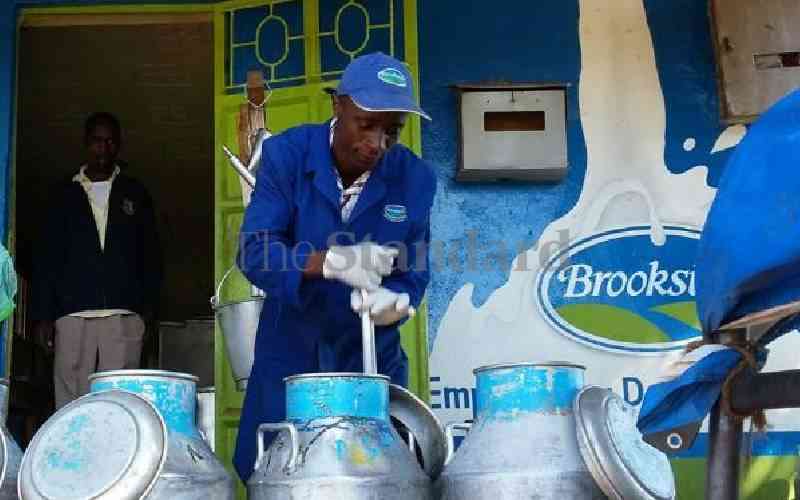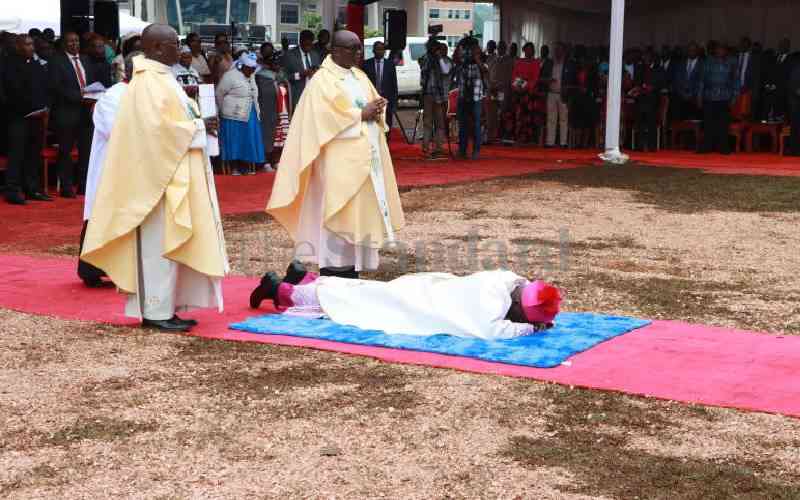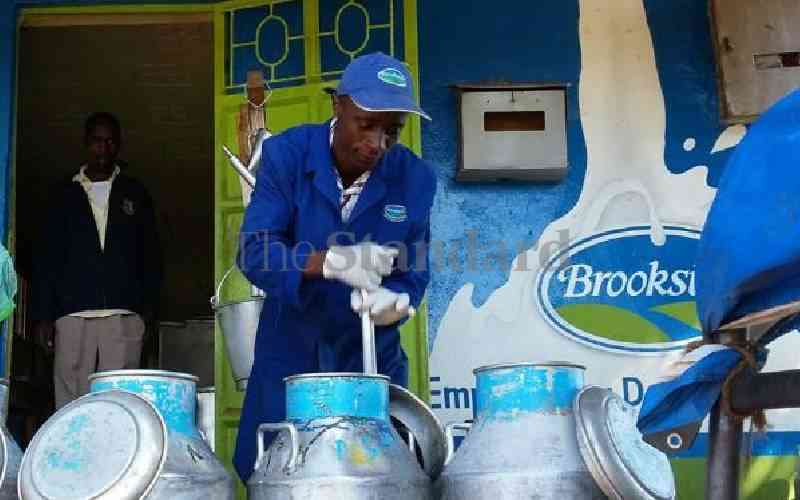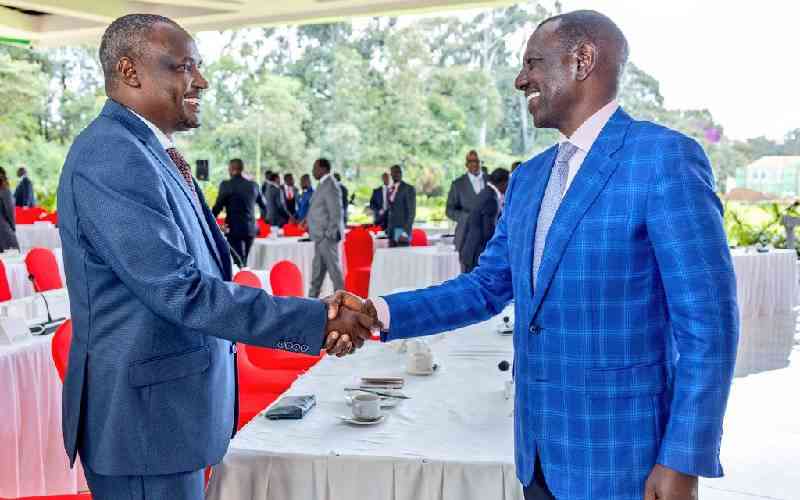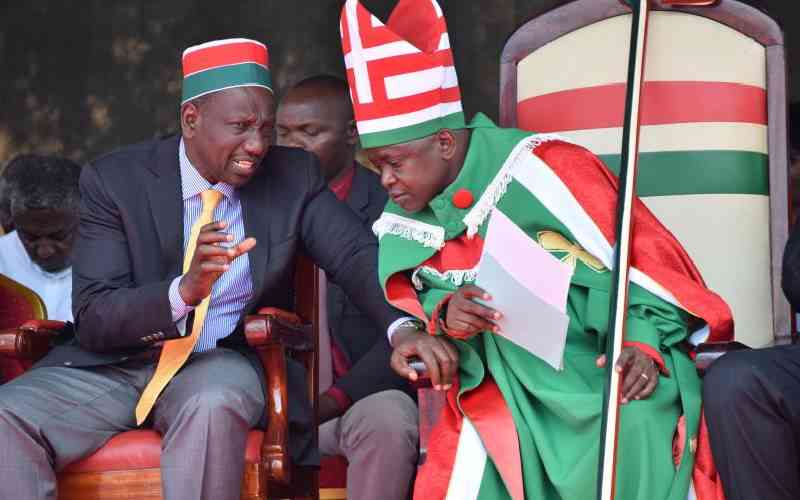By Robert Nyasato
NYAMIRA, KENYA: Dairy farmers in the South Rift have reason to smile after they earned a total of Sh370 million from their deliveries to Brookside in the past one year.
The earnings arose from a total gross production of 13 million liters of raw milk sold to the processor.
Brookside General Manager in charge of Milk Procurement and Extension Services John Gethi said the processor had embarked on plans to grow daily production volumes for each of their contracted farmers countrywide.
Speaking at Nyansiongo in Borabu Constituency, Nyamira County during a meeting, Gethi advised the farmers to maximize on economies of scale to better their earnings.
“We want to make dairy farming a profitable engagement by encouraging our farmers to increase their daily production volumes so that they can reap from economies of scale,” Gethi said.
In a speech read on his behalf by Brookside Regional Manager Davis Mwangoma, Gethi said part of the company’s strategy was to encourage farmers to register their animals with the Kenya Livestock Breeders Organization.
This will ensure the details of their animals were captured in the national Stud Book.
Registration of livestock, he said was important as it provided for the recording and maintenance of accurate ancestral information and other pedigree details about each animal.
However, Gethi decried the challenge of inadequate animal feed, in both quality and quantity, as an impediment to the development of the local dairy industry.
He urged farmers to practice forage preservation during the rainy season for continuous milk supply throughout the year.
“We are also encouraging the establishment of pasture grasses and fodder crops,” he said.
He said Brookside which commands 45 per cent share of the national raw milk market, would seek to expand this niche in readiness for the commissioning of a multi-million powder plant later in the year.
Mwangoma added the company will next month hold the biennial Brookside Livestock Breeders Show and Sale at Jamhuri Park, Nairobi, to show case technological development in the region’s dairy industry.
Borabu District Livestock Production Officer Thomas Sagwe said livestock registration and milk recording were vital instruments for tracing the performance of each animal.
Stay informed. Subscribe to our newsletter
He said records formed the basis of making management decisions on the farm.
“There is also value addition as registered and recorded stocks fetch better prices compared to unregistered ones," Sagwe noted.
Kenya Stud Book Extension Service Co-coordinator Duncan Musyoka said a total of 300 animals were registered during the exercise.
 The Standard Group Plc is a
multi-media organization with investments in media platforms spanning newspaper
print operations, television, radio broadcasting, digital and online services. The
Standard Group is recognized as a leading multi-media house in Kenya with a key
influence in matters of national and international interest.
The Standard Group Plc is a
multi-media organization with investments in media platforms spanning newspaper
print operations, television, radio broadcasting, digital and online services. The
Standard Group is recognized as a leading multi-media house in Kenya with a key
influence in matters of national and international interest.
 The Standard Group Plc is a
multi-media organization with investments in media platforms spanning newspaper
print operations, television, radio broadcasting, digital and online services. The
Standard Group is recognized as a leading multi-media house in Kenya with a key
influence in matters of national and international interest.
The Standard Group Plc is a
multi-media organization with investments in media platforms spanning newspaper
print operations, television, radio broadcasting, digital and online services. The
Standard Group is recognized as a leading multi-media house in Kenya with a key
influence in matters of national and international interest.

